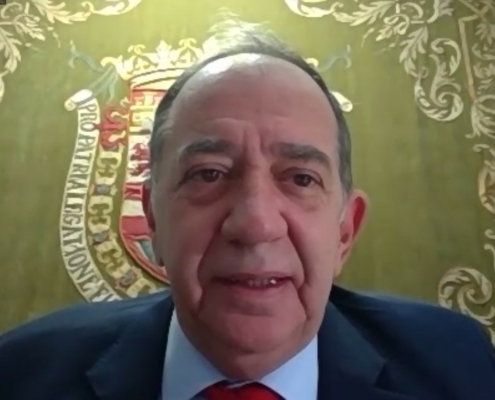
The Spanish Ambassador to Nigeria, Juan Ignacio Sell has called for urgent action to address the intersection of climate change and public health in Nigeria.
Speaking in Abuja at a media training event themed “Telling the Human Health Story in Times of Planetary Crisis,” Sell urged federal and state governments to prioritise coordinated health and climate responses.
The event, organised by Nigeria Health Watch (NHW) in collaboration with the Embassy of Spain, aimed to equip journalists with skills to enhance reporting on health and climate change. Two NAN journalists were among those selected for their exceptional experience in health and climate reporting, as well as their commitment to combating misinformation in these critical areas.
A United Nations consultant on global health, environment and development, Ms. Gloria Pallares underscored the need for integrated policies and increased funding. Pallares noted that a minimal portion of climate-related funds target health, despite growing evidence linking climate change to public health risks.
According to her, less than one percent of climate funding is directed to health initiatives, with only six percent of countries’ climate action plans addressing health directly. She warned that this funding gap hinders crucial adaptations, such as resilient healthcare infrastructure and training for community health workers, leaving health systems vulnerable to climate-driven challenges.
She highlighted alarming land degradation rates in Africa and Latin America, where over 60 per cent of land is compromised by unsustainable practices. “This degradation threatens food security, reducing access to nutrition,” Pallares said. “Without intervention, large areas of fertile land could become barren by 2050, leading to widespread hunger and malnutrition.” She stressed the need for climate policies that prioritise soil health.
Pallares advocated for an “all-society approach,” urging collaboration across sectors to strengthen health systems, manage droughts, and enhance food security. Drawing on Spain’s experience, where agriculture consumes 80 percent of water resources, she called for policies integrating water and land management with health goals.
“The climate crisis isn’t just environmental; it’s a public health emergency. Coordinated action is essential for a sustainable future,” she stated.
Public health correspondent at NAN, Ms. Racheal Abujah urged agencies and state governments to prioritise health in climate policies, advocating for reforms that align financial decisions with health benefits. “The time for piecemeal approaches is over. Climate change isn’t just an environmental issue; it’s a human health crisis,” she said. Abujah emphasised that robust policies and investments addressing both health and climate are essential to protect communities.
A health journalist with NHW, Mr. Tzar Oluigbo pointed out the irreplaceable nature of soil, which can take hundreds of years to form but can be lost in a single flood season. “With 65 per cent of land in Africa already degraded, urgent adoption of land management practices is essential to ensure future food security,” he said.
Publisher of ‘The Solutions Paper’, Mr. Chinonso Kenneth reflected on the training, which expanded his understanding of drought’s critical impact on food security and public health.
During the workshop, programme manager at NHW, Mr. Abara Erim addressed the issue of health information disorder. “Incomplete, misleading, and maliciously informed opinions hinder development and obstruct health solutions,” Erim stated, adding that climate change misinformation can delay urgent action.
Assistant editor and chief correspondent at NAN, Mrs. Patricia Amogu noted that misinformation on social platforms often fuels panic and fear, especially among youth. “With 79 per cent of young people aged 15-24 active on social media, they are frequently exposed to misleading content on platforms like Instagram, Twitter, YouTube and Facebook, impacting their perceptions of health and climate.”
A health journalist at ‘Premium Times,’ Ms. Beloved John added, “The training opened my eyes to the risks of misinformation on health and climate issues. Learning to distinguish between misinformation, disinformation, and accurate information is invaluable, enabling me to foster a clearer understanding of climate-related health impacts.”

